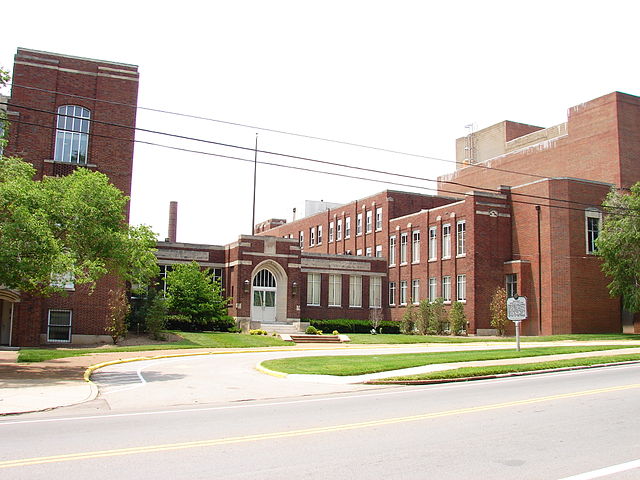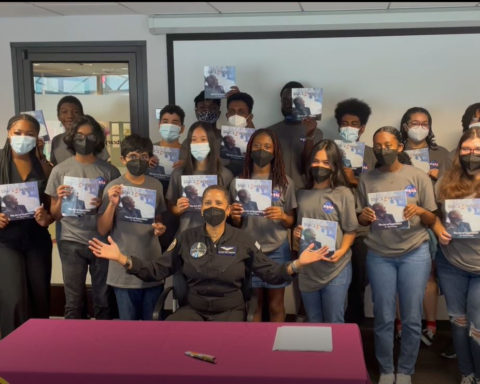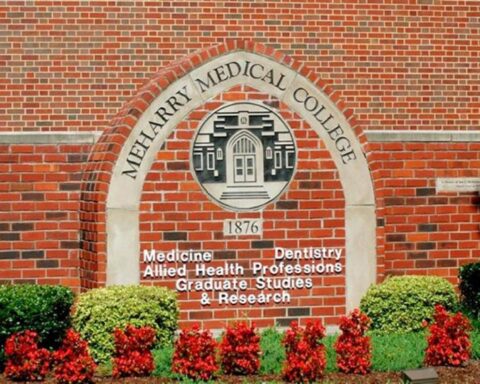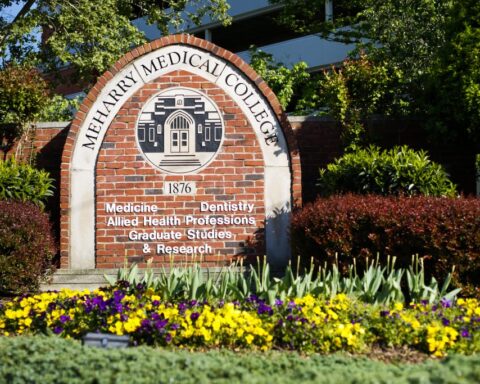By Meharry Medical College
The Metropolitan Historical Commission of Nashville and Davidson County has approved the erection of a historical marker as a memorial for Dr. Josie E. Wells—one of three female 1904 graduates of Meharry Medical College, its first female faculty member and Meharry President Dr. George W. Hubbard’s administrative right hand.
In collaboration with President James E.K. Hildreth, Meharry library director Sandra Parham submitted the application for the marker to the commission in October 2021 after having learned of Wells’ accomplishments through working with researcher Kristi Farrow in the library’s archival materials.
The Commission’s Historical Marker Program Guidelines stipulate city historical markers will be considered only when the proposed event, person, structure or place’s historical significance is proved to be or to have taken place 50 or more years ago.
Parham, library and archives director since January 2020, said she sees the addition of a historical marker on campus as an opportunity not only to officially memorialize Wells’ significant contributions but also to share with the city the rich history and legacy Meharrians such as Wells have contributed to the Nashville community.
“More than one-half of the educated colored physicians in the Southern states were graduates of Meharry Medical College, but of the many graduates of the era, few were women,” Parham said. “How family, money, academic or societal pressures may have impacted the women medical students, one can only imagine, but the opportunities for them were few and the constraints against their success, powerful.
“Gender barriers that proscribed women’s life and professional possibilities were institutionalized nationwide, and more so for Black women. Wells’ accomplishment of becoming a doctor in 1904, and later a hospital administrator, is all the more noteworthy.”
According to the guidelines, once the Commission approves the casting of a historical marker, it will take approximately three months to see the marker erected on its approved site at the former campus hospital whose façade still bears his name. The newly approved marker—which will join those of noteworthy Meharrians Hulda Margaret Lyttle and Donley Harold Turpin on campus—will include text cast on one side and a metal photograph of Wells with a caption cast on its other side.
Parham worked with the Commission’s historic preservationist, Jessica Reeves, to craft the marker’s wording, which begins with the title, “Dr. Josie Wells, 1876-1921,” and will read, “Josie E. Wells came to Nashville in 1900 to attend Meharry Medical College of Walden College. One of three women graduates in 1904, she specialized in caring for women and children. She held free clinics for needy families, regardless of race. Wells was the campus physician at Fisk University, the first woman on the Meharry faculty, was instrumental in fundraising for Hubbard Hospital and became hospital superintendent in 1912.”
The caption underneath Wells’ photograph, on the marker’s opposite side, will read, “Dr. Josie Wells in her graduation regalia, 1904. In addition to her medical work, Wells was widely involved in civic community work as part of the executive committee of the Colored Unit of the Women’s Council of Defense during World War I and in supporting woman suffrage. She died in 1921 at age 44, and is buried at Nashville’s Greenwood Cemetery.”
The Rest of the Story…In 1904, three women, including Wells, graduated as doctors.
“Remarkably, by the beginning of 1900 there were always at least four women in Meharry’s graduating classes across its then three departments, medical, dental and pharmaceutical,” Parham said.
Born in 1876 in Holly Springs, Miss., to Berry and Eliza English, Josephine “Josie” English had a modest but comfortable childhood. Although her parents had been enslaved before the Civil War, Wells’ father’s carpentry trade earned the family a steady income.
Her family owned their own home, and the children in the family were afforded college education. Josie worked early in her life as a nurse and married George Wells, a professor at Rust College in Holly Springs. George Wells passed away soon after the birth of the couple’s daughter, Alma, leaving Josie to provide for a child as a single parent.
Seeking an opportunity beyond Mississippi, Josie Wells moved with Alma to San Antonio, Texas, to lead a nursing program at the hospital of Dr. G.J. Starnes, an 1884 graduate of Meharry Medical College.
“Presumably it was Dr. Starnes who saw Wells’ potential, encouraged her to further her education to become a doctor herself, and recommended her to Meharry,” said Parham, adding that Wells began her studies in the four-year medical program at Meharry in 1900, working as a nurse while going to school to provide for her daughter.
When Wells graduated with her medical degree in 1904, she practiced medicine in Nashville, specializing in caring for women and children. She held a free clinic for needy families once a week and also was the campus physician at Fisk University, especially serving the women students of Fisk.
She taught at Meharry, was the first woman member of the Meharry faculty and lectured and fundraised to build Hubbard Hospital for Meharry. Her only sister, Mary English, also was a significant donor to the fundraising activities of Hubbard Hospital.
Wells also was widely involved in civic community work as part of the executive committee of the Colored Unit of the Women’s Council of Defense during World War I and in supporting woman suffrage.
“Raising money for the new Hubbard Hospital was a huge undertaking, in which Wells was materially involved,” Parham said. “When the hospital opened in 1910, Wells was its effective head, reporting to Hubbard, the medical school president and formal hospital superintendent. Although Wells became full superintendent in time, from the very beginning she, a Black woman, ‘had charge’ of the hospital.”
Wells worked directly with Hubbard, who was white, as had been all of the original Meharry faculty of the late 1800s.
“Wells’ position within Meharry was a unique professional path. She faced many difficulties to overcome as a woman administrator in a male-controlled institution, educating her daughter and also caring for and educating many nieces and nephews who had become part of her household in Nashville,” Parham said.
Josie Wells’ legacy continues to give back to her beloved Meharry in the form of student support through the John T. Givens Scholarship, which is awarded annually to a student in the School of Medicine. Givens was the husband of Wells’ only daughter, Alma Wells Givens.
Josie Wells died just over 100 years ago, on March 20, 1921, and was laid to rest at Nashville’s legendary Greenwood Cemetery.







